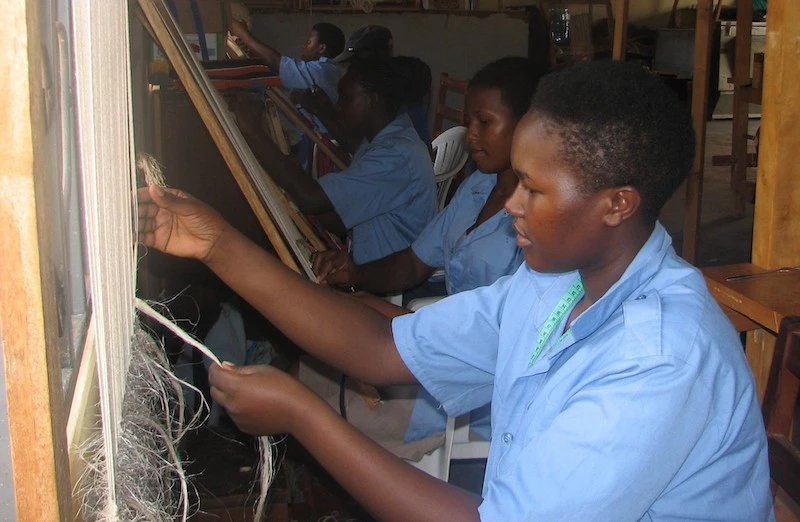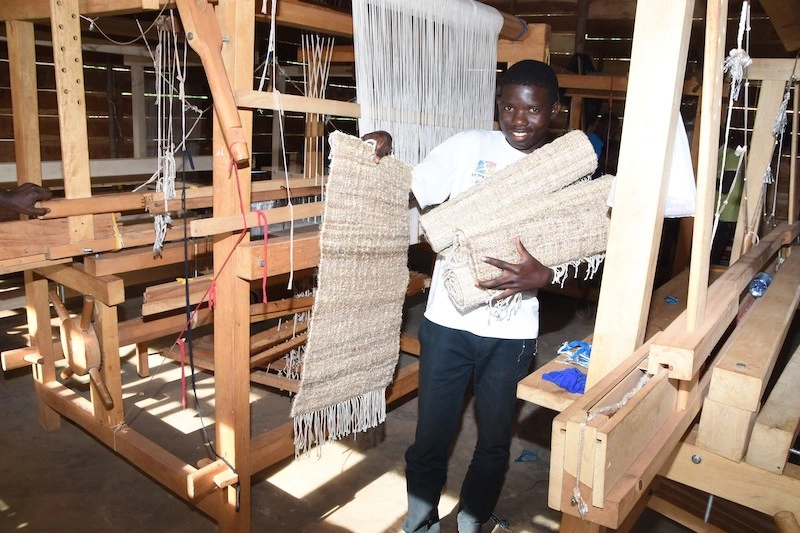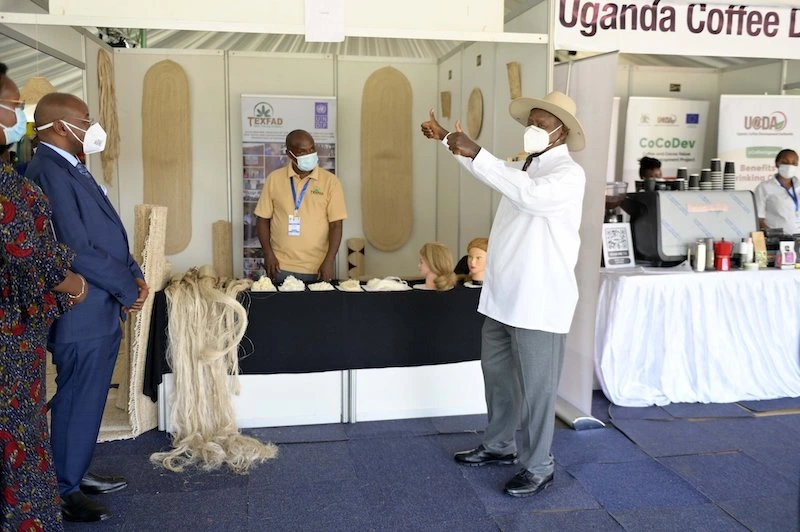Bananas, a seemingly modest fruit commonly found on breakfast tables worldwide, hold a far more significant role in the lush landscapes of Uganda. Beyond their nutritional value, these unassuming fruits are propelling an environmental and economic revolution. This movement has led to the emergence of pioneering industries that convert banana waste into sustainable textiles, biodegradable extensions, and even vegan leather. Allow us to introduce TexFad, a local startup that’s harnessing the potential of banana waste, creating valuable eco-friendly products, and reshaping Uganda’s economy in the process.
A Banana-Driven Economy:
Uganda, often dubbed the “Pearl of Africa” for its stunning natural beauty, is a leading global producer of bananas. With over 10 million metric tons produced annually, the country ranks second only to India in this agricultural endeavor. Bananas, in fact, are so deeply ingrained in Ugandan culture that they constitute a daily dietary staple, with an average consumption of nearly one kilogram per person. This dependence on the fruit has far-reaching implications for the population, as more than 75% of Ugandans rely on bananas as a fundamental food source.
From Waste to Opportunity:
Yet, with abundance comes challenges. The post-harvest and processing waste generated by the banana industry poses a significant problem. Tonnes of banana stems end up in landfills, a glaring issue for both environmental sustainability and economic potential. But Ugandans are not ones to let waste go to waste. Enter TexFad, a visionary startup that saw opportunity where others saw disposability.
TexFad recognized that banana stems, which were traditionally discarded, could be upcycled into valuable resources. The company embarked on a journey to transform banana waste into sustainable textiles, hand-crafted products, and even innovative vegan leather. It was a move that would not only mitigate environmental issues but also create employment opportunities and foster economic growth.
Innovative Transformation:
The transformation began with technology and innovation at its core. Traditional methods of manually extracting banana fibers were labor-intensive and unfeasible for large-scale commercial production. TexFad took a pioneering step by collaborating with local smallholder banana farmers and non-formal engineering sectors. Together, they developed extractor machines that streamlined the banana fiber extraction process. This partnership marked a pivotal shift, enabling larger volumes of banana waste to be processed efficiently.
Community Empowerment:
TexFad’s impact transcends its product line. The startup, deeply embedded in the community, not only diverted banana waste from landfills but also provided employment opportunities for Uganda’s youth. In a country where nearly 77% of the population is under 25, addressing youth unemployment is a critical challenge. TexFad’s vocational training, skills development, and business incubation initiatives have breathed new life into the community. Over 400 youth have benefited from TexFad’s skills training programs, with 27 youth retained in the company. The startup’s youth-led management and departmental structure further underscore its commitment to self-reliance and sustainable employment.
Circular Transformation:
TexFad’s journey aligns seamlessly with the principles of circular transformation – a concept endorsed by the World Economic Forum. Circular transformation emphasizes adaptable business models and sustainable growth, both of which TexFad embodies. The company’s ambition to mechanize production processes while maintaining over 60% manual processes strikes a balance between efficiency and sustainability. This holistic approach not only transforms banana waste into valuable products but also positions Uganda as a hub for eco-friendly and sustainable offerings in Africa.
Banana Fiber: The Fiber of the Future:
The innovation doesn’t stop at textiles. Banana fiber is being explored for a multitude of applications. From biodegradable hair extensions that become plant nutrients to vegan leather for shoes, belts, and bags, the possibilities are limitless. Even the by-products of banana fiber production have found purpose – carbonized remnants are turned into smoke-free charcoal briquettes, offering clean energy solutions.
Exporting Innovation:
TexFad’s impact is rippling beyond Uganda’s borders. The startup’s success story has reached international markets. It plans to export its unique products, including banana fiber carpets, to customers in the US, UK, and Canada. What began as a local initiative to combat waste has evolved into a global model for sustainable innovation and economic empowerment.
Conclusion: A Greener Future
The story of TexFad illustrates the power of innovation, collaboration, and vision. By transforming waste into valuable resources, the startup has demonstrated that sustainability and economic growth can coexist. Uganda’s banana-driven economy has taken a new turn, leading the charge toward a greener future. As the world grapples with environmental challenges, TexFad serves as an inspiring reminder that solutions can emerge from the most unexpected places – even from the humble banana trees that dot Uganda’s landscape.























